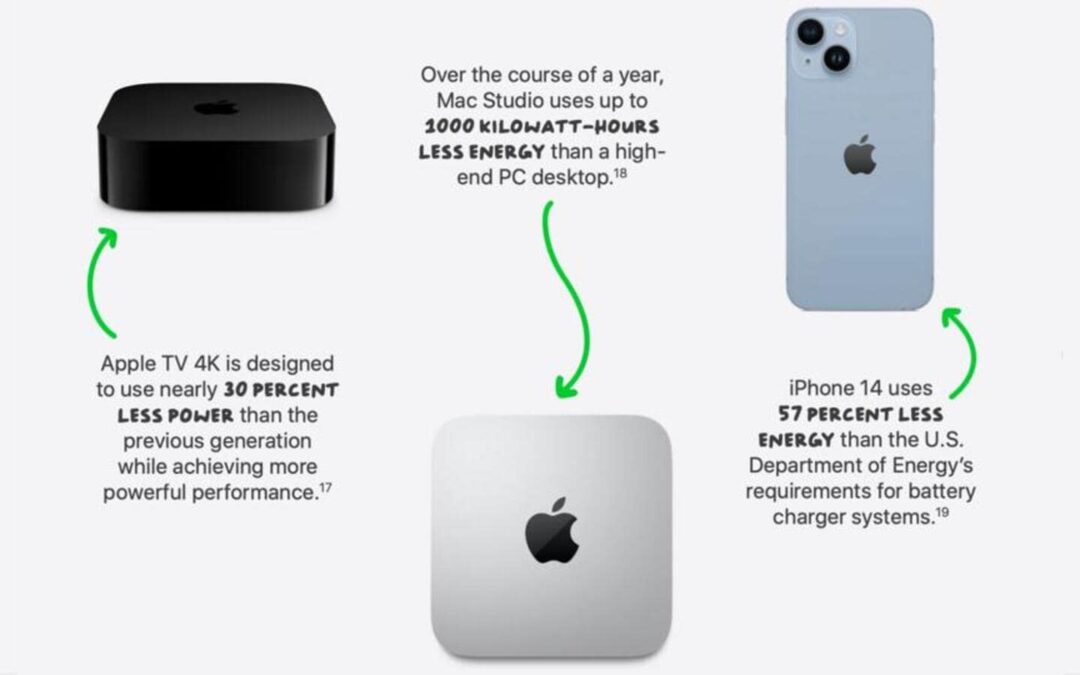[ad_1]
As Apple continues to expand the scope of social initiatives in India, an Energy for Livelihoods Accelerator has been designed for social entrepreneurs. This 12-week program, which starts in September, will focus on what they define as social enterprises, or business which have a social or environmental mission. For this, Apple is working with global non-profit, Acumen. The latest initiative is part of Apple’s increasing involvement with communities, including for environment and upskilling.

Apple and Acumen hope the Energy for Livelihoods Accelerator will create an ecosystem of social enterprises in the country, with potential for scaling up, while working to advance sustainable energy solutions for small businesses and farmers.
“Apple is committed to helping ensure everyone can share in the benefits of a greener economy. We’re demonstrating the transformative potential of clean energy in everything we do, and excited to support social innovators who share that goal,” says Sarah Chandler, Apple’s vice president of Environment and Supply Chain Innovation.
Also read:Tech, education, community and climate: Understanding the Tim Cook philosophy
The tech giant’s country specific initiatives around environment, education and local issues, sit alongside the tech giant’s global pursuit for reducing a wider footprint on the environment. A net-zero pledge that means more than just using recycled materials in product manufacturing.
“We think climate change is the biggest issue of the century. We want to put all of ourselves into solving a part that we can solve, and running our company on renewable energy is a part of that,” Tim Cook, CEO of Apple, told HT earlier this year.
Acumen hopes the program will “accelerate a cohort of early-stage social enterprises using clean energy and energy-efficient solutions to serve the needs of low-income communities.” The non-profit says participants for the accelerator will join a global community of small businesses, called The Foundry, and will be eligible for early-stage investment via the Pioneer Energy Investment Initiative.
“For over 20 years, Acumen has invested in early-stage social enterprises addressing problems of poverty in India, and some of our most innovative recent investments have been at the intersection of energy access and livelihoods,” says Mahesh Yagnaraman, Acumen’s director for India. He hopes the partnership with Apple will help build an ecosystem of scalable social businesses in the country, specifically focused on the use of sustainable energy.
Acumen says investments in India are now around $41.2 million, with a claimed 82.9 million lives impacted by various initiatives. Some examples include working with Drishtee to provide health services in villages, education for youth in rural parts of the country with Edubridge and working with BioLite to spread awareness about low-cost biomass stoves.
Also read:At 25 years in India, Apple shifts gears beyond products and sales
Earlier this summer, Apple announced the clean water initiative, partnering with non-government organisation Frank Water. The focus is on improving water quality and supply, as well as availability of sanitation and hygiene facilities. The pilot project is in Anekal taluk, in the outskirts of Bengaluru.
Apple has also begun working with the Applied Environmental Research Foundation to promote the protection and conservation of mangroves in Maharashtra. Mangroves can store up to 10 times more carbon per acre than terrestrial forests.
The company has also collaborated with the Barefoot College to conduct training programs for women in rural India, with particular focus on the advantages of using solar energy in communities.
Globally, Apple’s initiatives include pushing clean energy in South Africa, forest preservation in Georgia, and an impact accelerator for climate change in Michigan in the US.
Alongside country specific initiatives, the tech giant has set a global target of carbon neutrality across its entire business, all products they make, supply chain, and product life cycle, by the year 2030. Its own operations became carbon neutral, including Apple Stores globally, in 2020.
Product manufacturing, too, is well on its way to meeting the Apple targets for 2030.
Last year, Apple said they’ll be using the world’s first direct carbon-free aluminium in its iPhones beginning with iPhone SE. Direct carbon-free aluminium is the result of improvements in smelting technology to reduce emissions. This aluminium is the first to be manufactured on an industrial scale outside of a laboratory and does not create any direct carbon emissions during the smelting process.
Hydropower is used in the process of making this aluminium. As a result, the process to make this aluminium produces oxygen, instead of direct greenhouse gas emissions that emerge from the traditional methods.
Also read:Apple aims for carbon neutrality, seeks wider local community support in India
Tim Cook made it clear that any and all environment focused targets, are “non-negotiable”, highlighting that the 2030 target for Apple’s entire set of operations being totally carbon neutral, is a hard deadline.
For instance, the new Apple Stores in India, Apple BKC in Mumbai and Apple Saket in Delhi, use completely renewable energy from dedicated solar arrays, making them carbon neutral operations.
Earlier, the company announced a switch to fully recycled cobalt for batteries by 2025 and set a similar target to use entirely recycled rare earth elements for magnets in its devices. All Apple-designed circuit boards will also use fully recycled tin soldering and gold plating, the company has planned.
The Apple iPhone 14 series, for instance, has fully recycled gold in the wire of all cameras, recycled tin is used in the solder of the main logic board while the antenna lines are made from upcycled plastic bottles that may have otherwise ended up in a landfill.
The company says 67 percent of all aluminium that was shipped as part of the MacBook, iMac, iPad and Apple Watch product lines, was from recycled sources. The new MacBook Air 15 launched this summer, for instance, is made from completely recycled aluminium, 100 percent recycled cobalt for the MagSafe connector, 90 percent recycled steel in the battery tray and more than 35 percent recycled plastic.
[ad_2]
Source link


